More From News
UIII Builds a Bridge to Costa Rica
February 26, 2026
UIII Strengthens Its Academic Resources with Read Japan Project
February 25, 2026
September 23, 2025
Contributor: Supriyono | Editor: Dadi Darmadi | Photo: Achmad Jatnika & Sarah Permatasari
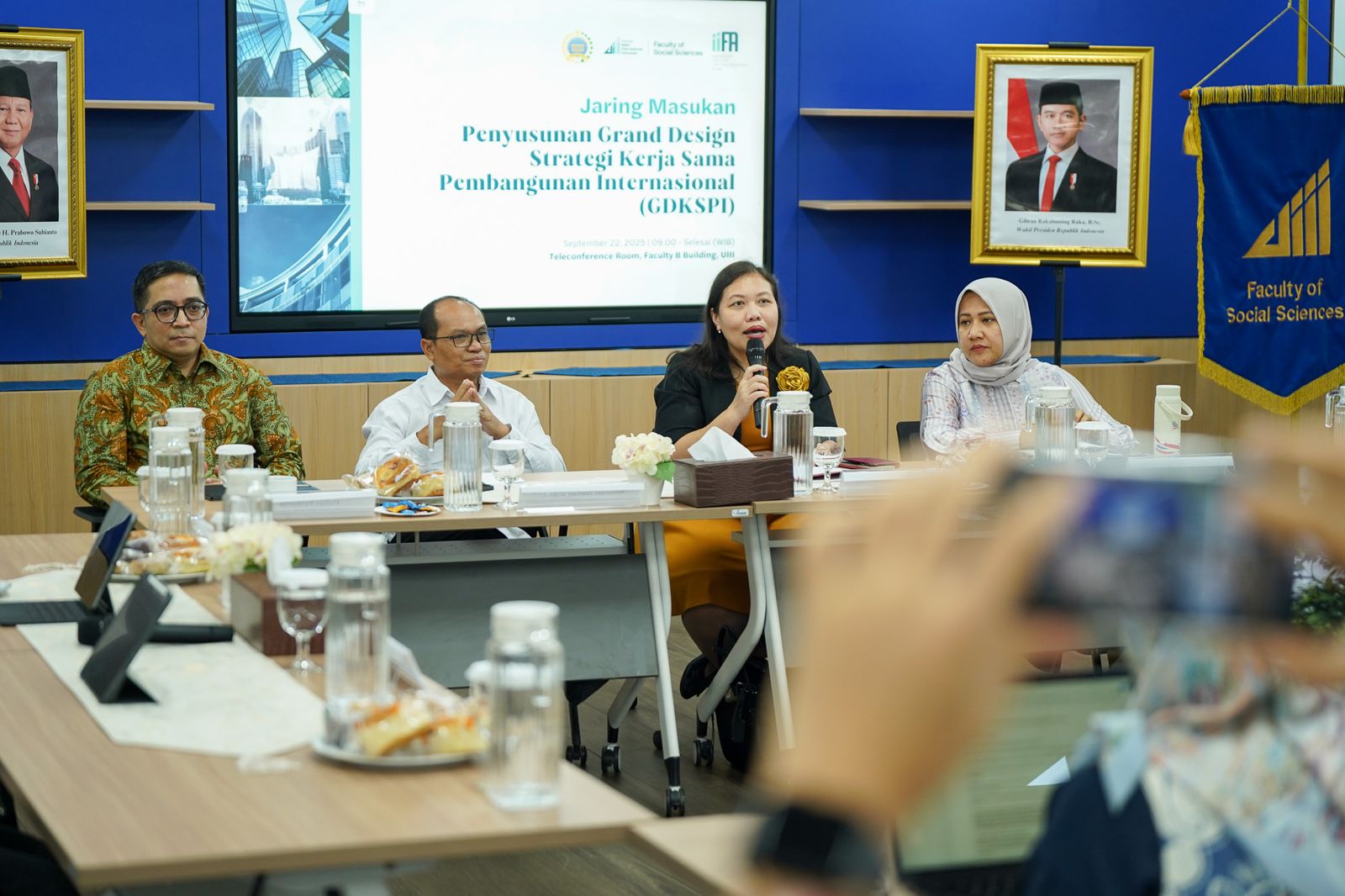
The Indonesian Ministry of Foreign Affairs (MoFA), in collaboration with the Ministry of National Development Planning (Bappenas), held a Focus Group Discussion (FGD) on September 22, 2025, at Universitas Islam Internasional Indonesia (UIII) to gather insights for its draft concept on Indonesia’s strategy for international development cooperation and assistance, also known as Indonesia Aid.
The session brought together key stakeholders from government, academia, and research institutions, including representatives from MoFA, Bappenas, the State Secretariat, BRIN, CSIS, UIII, Universitas Indonesia (UI), and Universitas Kristen Indonesia (UKI). The FGD marks the first stage of consultation for shaping Indonesia’s grand design for international development cooperation, with further rounds of dialogue planned.
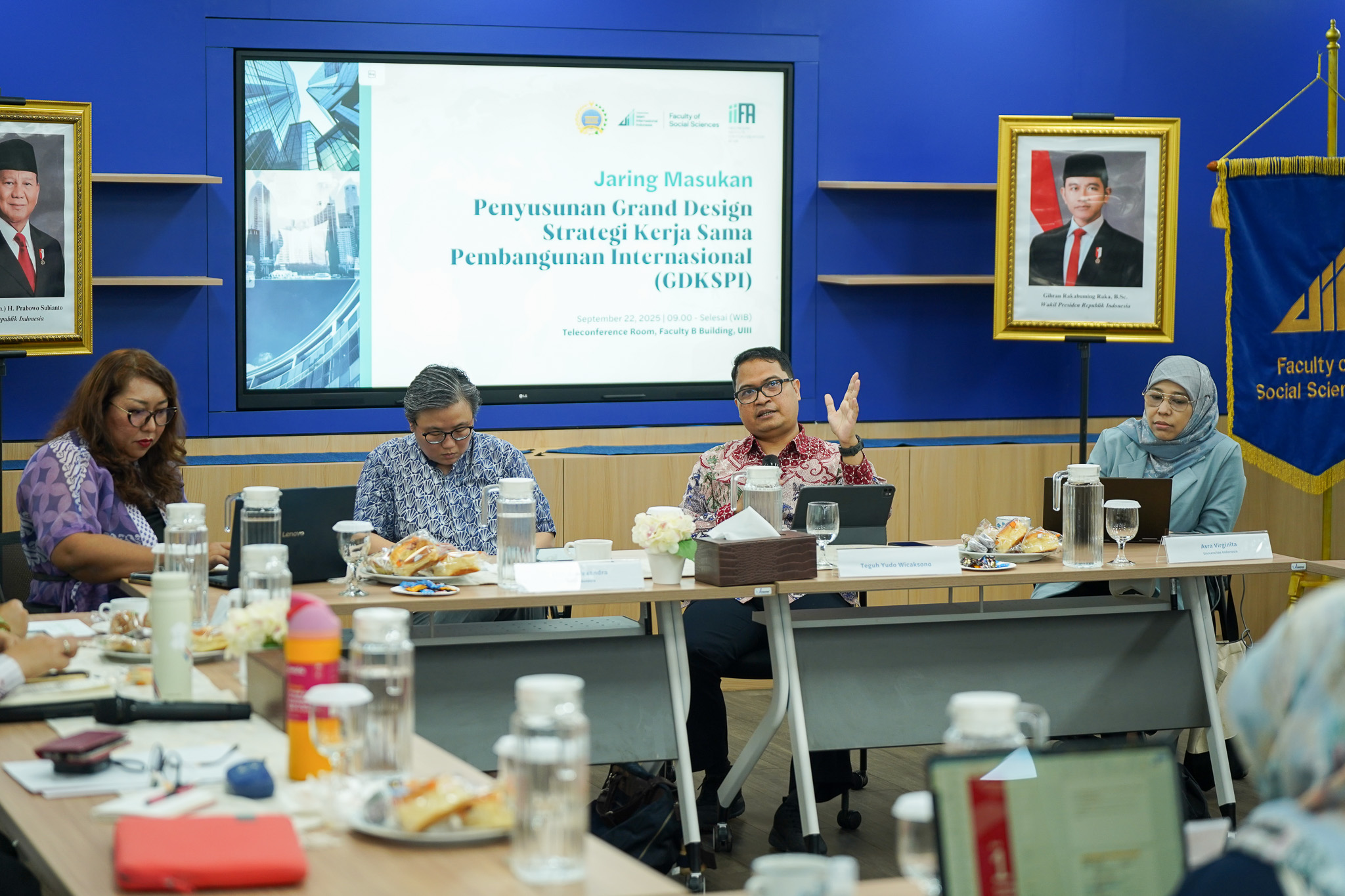 Rina Setyawati, Director of International Cooperation at MoFA, emphasized the significance of academic perspectives in enriching the grand design draft. “Today we are here to discuss and seek input, particularly from the academic community, which can provide sharper perspectives on international development. We need to identify what elements should be included in this grand design,” Rina said.
Rina Setyawati, Director of International Cooperation at MoFA, emphasized the significance of academic perspectives in enriching the grand design draft. “Today we are here to discuss and seek input, particularly from the academic community, which can provide sharper perspectives on international development. We need to identify what elements should be included in this grand design,” Rina said.
“Indonesia, as an emerging development partner, faces growing demands for leadership. We therefore need a solid legal and policy framework so that what we offer to other countries aligns with national interests, is well-governed, and creates meaningful impact. We truly appreciate UIII for being our partner in this process, and we hope to continue this collaboration in the future.”
UIII was selected as the knowledge partner for this initial consultation through its Faculty of Social Sciences (FOSS) and the Indonesian Institute for Foreign Affairs (IIFA), the university’s newly established policy-oriented think tank.
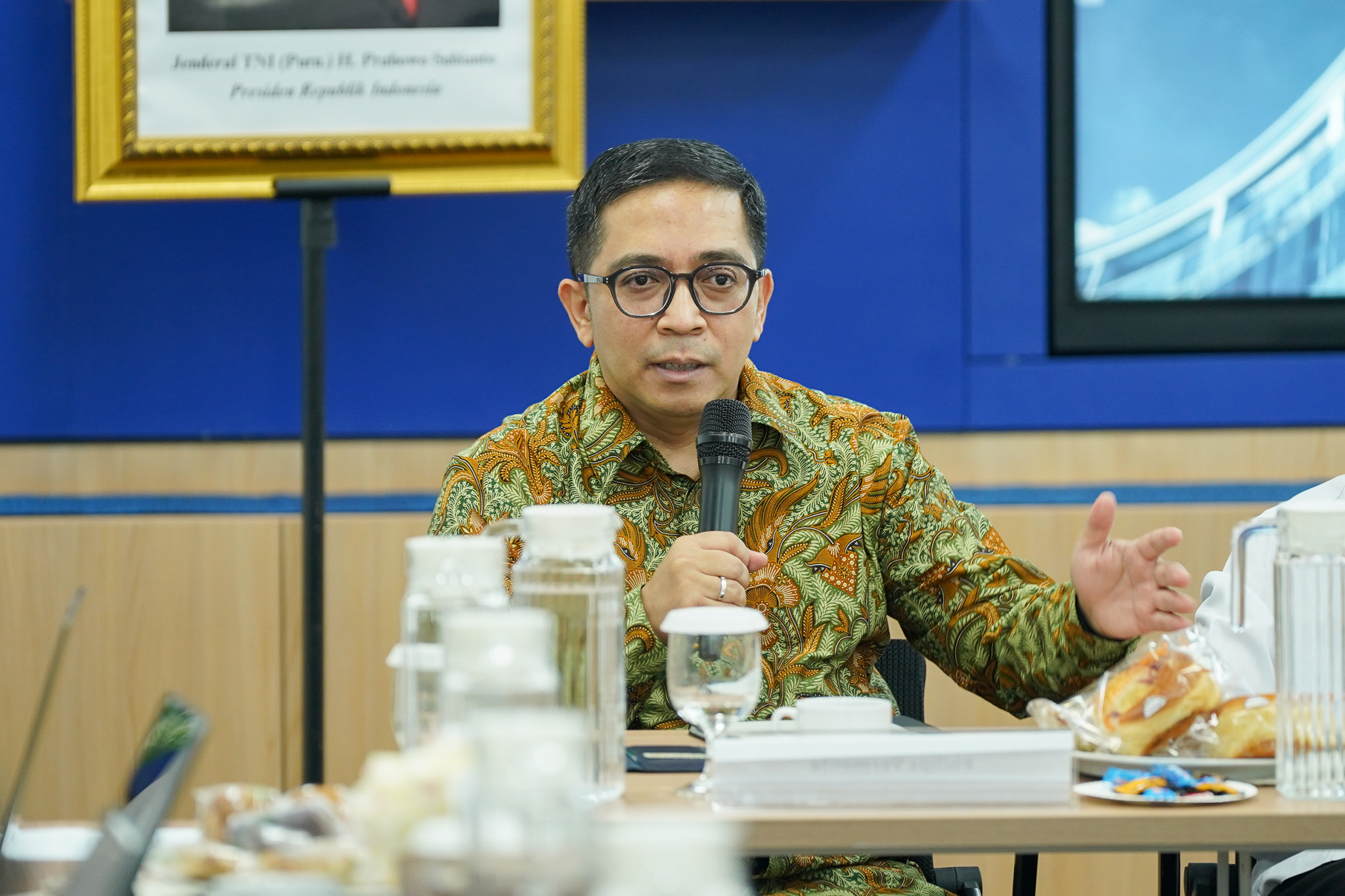
Philips J. Vermonte, Ph.D., Dean of the Faculty of Social Sciences at UIII, welcomed the trust placed in the university. “We are grateful to be entrusted with contributing to the process of gathering input on Indonesia’s grand design for international development cooperation. We are more than happy to support this effort,” Philips said.
“When I was still at CSIS, we initiated research on South-South and triangular cooperation, which has now evolved into this important policy framework. At UIII, we see this as a continuation of Indonesia’s transformation in international cooperation—from being merely a recipient to becoming a provider of assistance. This is also reflected in UIII’s mission of offering scholarships to students from developing countries across the Global South.”
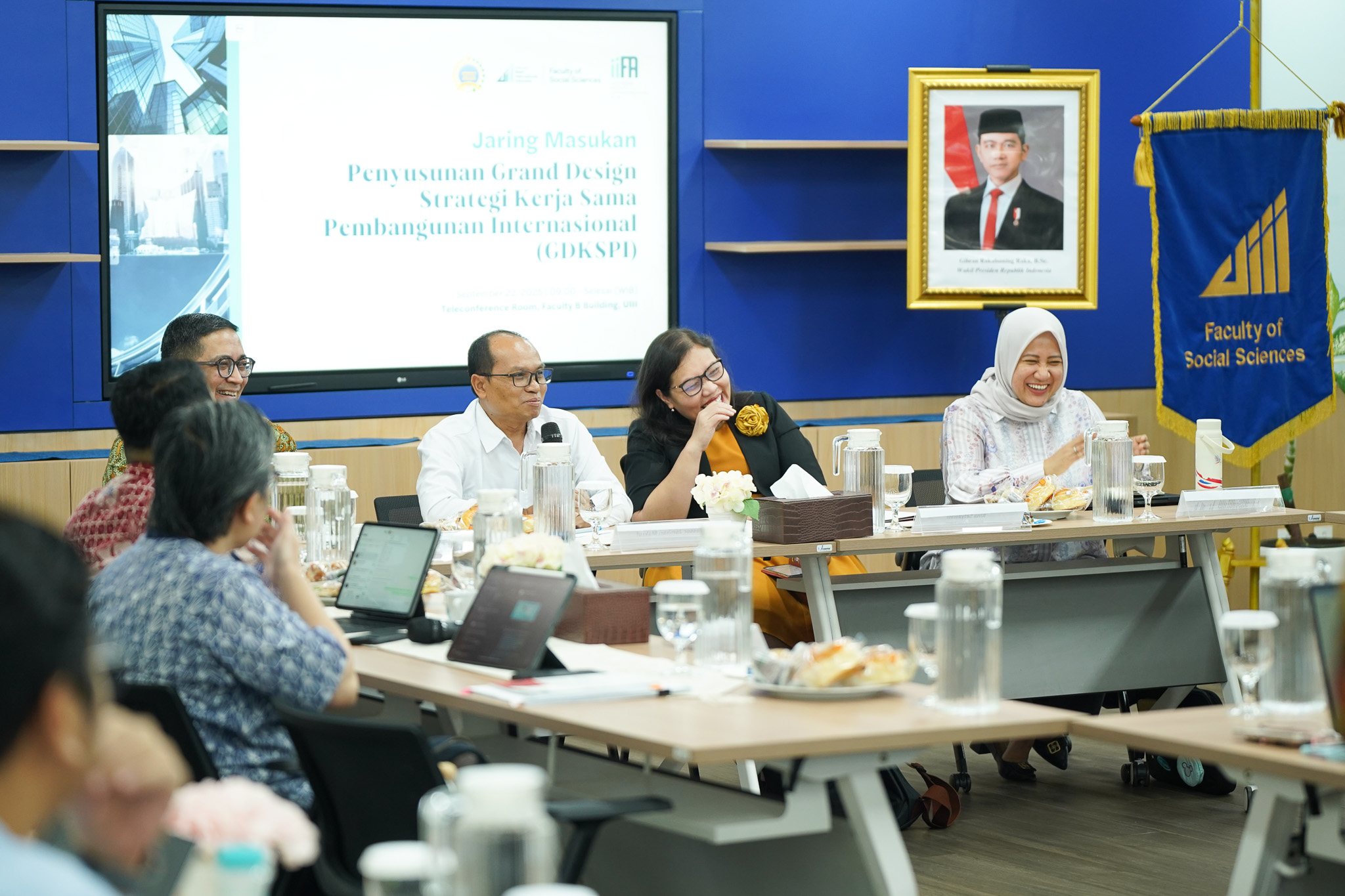
Prof. Jamhari, Rector of UIII, underlined the university’s identity as an academic and diplomatic institution designed to project Indonesia’s global presence. UIII, he said, was founded as an icon and representative of Indonesia in the international arena, saying that its mission rests not only on academic excellence, but also promoting Indonesia through moderate Islam and Pancasila values, and diplomacy.
“Diplomacy, for us, means shifting from a recipient to a donor. In the past, thousands of Indonesian students studied abroad on scholarships provided by countries whose economies are not better than Indonesia. Now, it is Indonesia’s turn to provide scholarships to students from those countries.”
The discussion highlighted Indonesia’s growing commitment to move beyond its traditional role as an aid recipient to a credible development partner for the Global South. UIII affirmed its readiness to help and contribute in any way possible, particularly by serving as a knowledge partner that provides research-based insights, academic expertise, and policy-oriented analysis to support the design and implementation of Indonesia’s international development cooperation strategy.
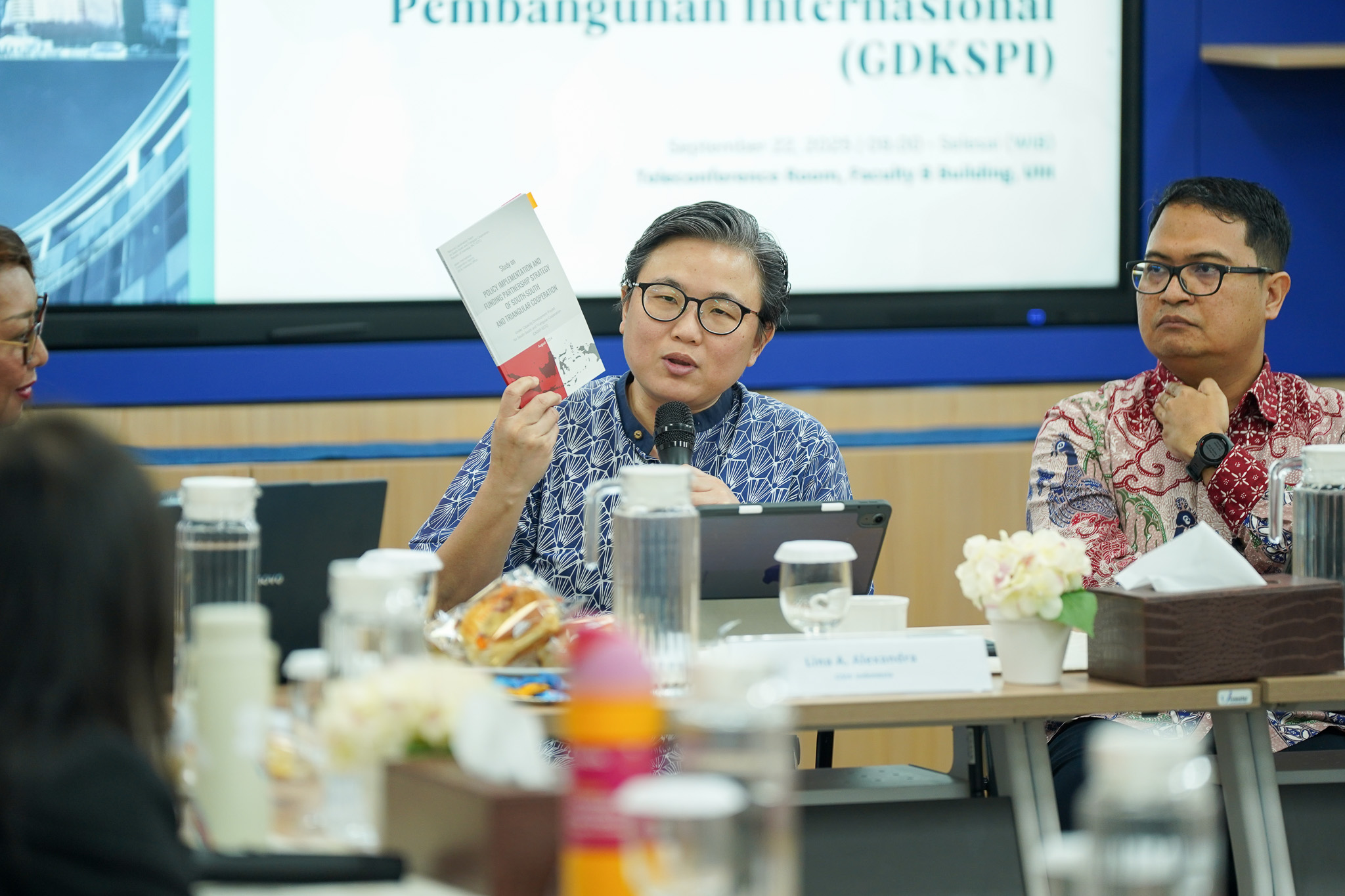
Universitas Islam Internasional Indonesia